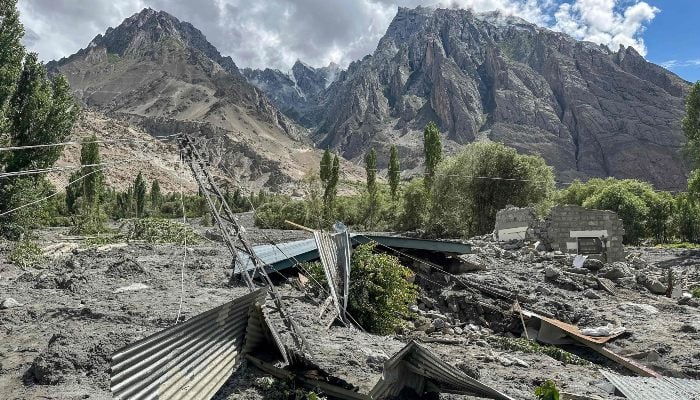GB climbing season severely hit by climate disasters, challenges
Harsh weather, conflicts, and fee disputes slash tourism, leaving local economy reeling
September 02, 2025

The mountaineering season in Gilgit Baltistan (GB), once a cornerstone of Pakistan’s adventure sports and tourism, has suffered an unprecedented collapse this year, with international climber arrivals plunging by nearly 90%.
According to a statement issued by the Alpine Club of Pakistan on Tuesday, unpredictable climate disasters, coupled with international conflicts and domestic challenges, have devastated livelihoods across the mountainous region.
Official figures suggest only 270 international climbers visited GB this season to attempt some of the world’s most iconic peaks — K2, Broad Peak, Gasherbrum-I, Gasherbrum-II, and Nanga Parbat. This marks a drastic fall compared with more than 2,000 foreign climbers and trekkers last year.
Severe weather, including avalanches, rockfalls, and high winds, forced many expeditions to abandon their climbs. Just 40 climbers managed to summit K2, 25 reached the top of Nanga Parbat, while only a handful succeeded on Gasherbrum-I.
Domestic tourism also recorded a steep decline. Last year, more than one million local tourists and around 24,000 foreign visitors without permits travelled to GB. This year, both domestic and international arrivals have dropped alarmingly, dealing a major blow to the region’s economy.
The downturn has been driven by multiple factors: disputes over increased permit fees, ongoing geopolitical conflicts such as the Iran-Israel war, strained relations between Pakistan and India, and increasingly erratic mountain weather conditions.
The collapse of mountaineering activity has triggered a ripple effect across the local economy. Hotel owners, shopkeepers, transporters, porters, artisans, and small tea stall operators along the Karakoram Highway are struggling to survive. Many who invested heavily in tourism-related businesses in recent years now find it difficult to cover basic expenses, including rent and salaries.
President of the Alpine Club of Pakistan Maj Gen Irfan Arshad HI (M) voiced deep concern over the crisis, saying: “Mountaineering is the lifeline of Gilgit-Baltistan, and this year’s collapse has created a ripple effect of losses across all sectors.”
He added: “It is imperative for the government to address policy challenges, resolve disputes with stakeholders, and take urgent measures to revive and promote both domestic and international adventure tourism in the coming seasons.”









